Teaching in reception for the first time
It could be argued that teachers who move into teaching reception for the first time, face the same challenges as the children themselves as they start in reception.
by Cathy Gunning
Teaching in the early years is not easily definable. Early teaching and learning is about the process, the journey and the unique child. It is everything concerning every child that makes up their context for effective play and and learning. It is everything the practitioner does or does not do. It is quite complex, with multiple strands which is why effective teaching in the early years is a matter for dialogue and reflection. Having time to talk about dilemmas, practice, tips and thoughts is vital for us to learn and grow in developing our pedagogy.
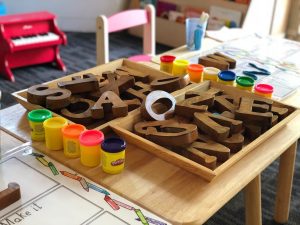
How children learn is key and how each child learns is much to do with their play and how they are taught. Actually, more precisely, it is to do with their entire learning environment. This world in which they live, experience, learn and play is responsible for their learning and that includes the enabling adult providing the recipe or formula if you like, for the conditions for learning.
For me, teaching the early years is about all the pedagogical beliefs of how children learn and how that is enabled through environments and adults, through their teaching styles, teaching skills and personal pedagogy.
The dilemmas come when we have to know how and what to teach every day. As a colleague recently and so succinctly said, “do we teach the child or the curriculum?”
Whether we teach the child first or the EYFS first depends on so many factors
It is this and so much more. Given these factors it is no surprise that teaching in the early years is the ability to use and apply a skill set that has been developed and refined over time and adapted to fit and meet individual children and different environments. It can be and never has been aimless. Play is impossibly aimless by its very nature. Conversely it is not purely “aimful” because this implicates an end goal and a certain track or direction for the child. Aims have their place, but early years teaching and learning is so much deeper and wider. I would suggest that a purely ‘aimful’ teaching style misses the point of the EYFS and limits teaching, learning and play in young children as well as undermining the skills of the adult to tune in, develop and extend from where the child is at. I am sure that many of you, like me, have carefully “planned” a structured adult led activity to be observed which the children have taken to a completely and much more fulfilling and challenging place than I could ever have planned. This is early years teaching and to practice this is admirable when it is underpinned by solid pedagogy, an understanding of how children learn, a belief in play-full learning and a joy in seeing young children learn and develop.
The characteristics of effective learning in early years define and underpin so much of our current pedagogy and practice in the EYFS. I love the characteristics and find them so relevant in the way of all we do, linking up the areas of learning to the fundamentals of effective learning. I think it is summed up perfectly in these paragraphs below:
… early years education is important because it can build children’s learning power. The right kind of experiences and support can help children to become confident, creative motivated do-ers and thinkers so that the early years build strong foundations for all they will encounter in the future. I am looking for the practitioner who understands that play is about much more than the content, but also help sto build flexible minds and an enquiring spirit.
Only when we understand the power of the experiences, opportunities and interactions we provide to foster children’s effectiveness as learners will we be able to use our knowledge and skills to make this difference. We need to ensure an environment that recognises and celebrates children’s growth as learners, and supports them to recognise and value this for themselves. We need to apply our observation and assessment skills to children’s development as learners – to consider their strengths, where they need support, adn their individual temperaments – and determine the best ways to be enabling partners in children’s learning to learn.
from How children learn: the characteristics of effective early learning by Nancy Stewart
If you have been stirred, inspired or interested by this piece, you might want to talk more about what early learning and teaching means to you. I believe that my own personal teaching and learning is only effective and relevant if I have time to process, reflect, dialogue, be inspired and challenged. My wish is that our pedagogic beliefs are refined, practised, applied and developed throughout our learning journeys as much as they are for every child.
Having time to talk and reflect is an invaluable asset to our learning journey. Being able to talk with other early years colleagues is a great way to develop professionally and pedagogically. We probably never have enough time to talk. You might long for more. Find opportunities through our local branches around the UK, and our courses and conferences.
It could be argued that teachers who move into teaching reception for the first time, face the same challenges as the children themselves as they start in reception.
A call for universal expertise for applications to primary school headship Transition for children from the Reception class into Year 1 in England remains fraught
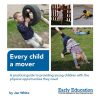



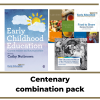
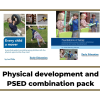
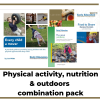
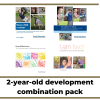
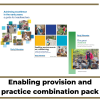
Early Education
2 Victoria Square
St Albans
AL1 3TF
T: 01727 884925
E: office@early-education.org.uk